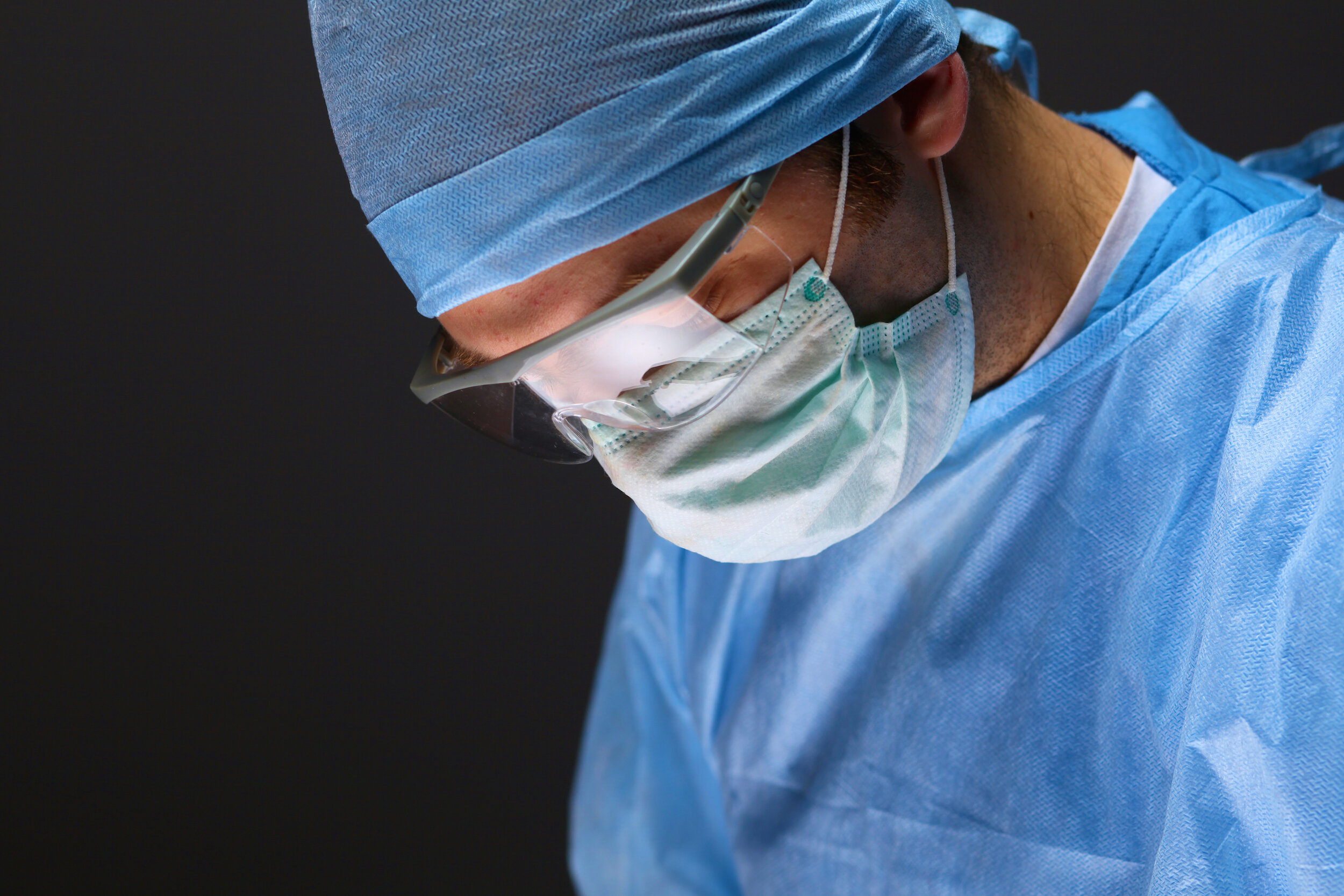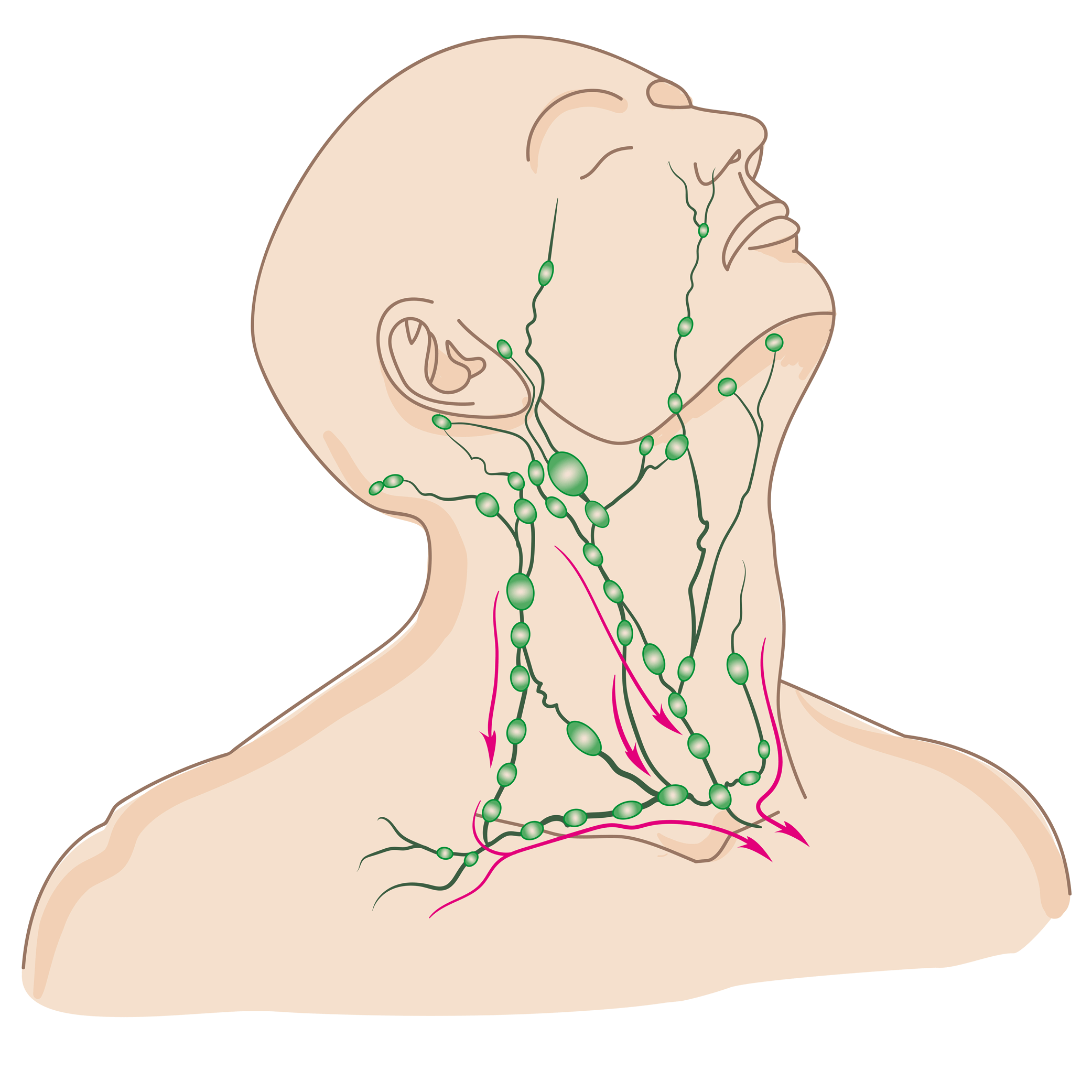Treatments: Oral tumors
Treatments of oral tumors is always customized to the individual situation. Surgery is the main treatment option for oral cancers, although radiation and medical therapy often play a role. This page gives some general information on various treatment categories.
Removal of tongue cancer (partial glossectomy, total glossectomy)
The importance of the tongue for speech and eating cannot be overstated. When surgery is undertaken for cancer involving the tongue, great care is taken in attaining complete removal while making every effort to spare normal tissue. For larger resections, a flap of tissue borrowed from elsewhere on the body may be used to recreate some of the tongue bulk and minimize limitations. Recovery of tongue function is a gradual process, often with good restoration of tongue functions.
Removal of floor of mouth tissue
When necessary, the a portion of the floor of the mouth may require removal. As always, care is taken to perform adequate removal while preserving as much normal function as possible. A normal floor of the mouth not only covers and protects tissues underneath it, but also provides stretch and mobility to the tongue. Reconstruction options such as using a flap of tissue from another part of the body serve to preserve or restore as much of this function as possible.
removal of cheek tissue (buccal mucosa)
If the inner lining of the cheek must be removed, a complete cancer removal is paramount, but preserving function is a close second. Usually performed during the same operation as tumor removal, reconstruction may be necessary to prevent scar tissue from preventing full jaw opening long-term.
removal of the roof of the mouth (palatectomy)
Complete removal of a cancer on the palate may involve loss of the lining (mucosa) and possibly some bone. As needed, restoring the palate for speech, eating, breathing, and separation of the mouth from the nose and sinuses is typically performed with a reconstructive flap of tissue during the same operation as the tumor removal. A specialized denture, called an obturator, may also be made by a Prosthodontist to create a partition between the mouth and the nose.
removal of jaw bone (mandibulectomy and maxillectomy)
For more extensive cancers, removal of some of the jaw bone may be necessary. Several variations on this theme exist and each case is different. Restoring jaw function for eating, speech, and facial appearance is undertaken with options ranging from simple to complex depending on the situation.
Removal of lymph nodes (cervical lymphadenectomy or “neck dissection”)
Oral cancers tend to be the type of cancer with a predisposition to spread to lymph nodes of the neck. If one or more lymph nodes appears to have cancer spread to it or if there is high risk for spread to the lymph nodes, any surgical approach to the primary tumor (where the cancer started) is often combined during the same operation with removal of those lymph nodes. This procedure, when done is skilled and experienced hands, can remove cancerous lymph nodes with maximal preservation of the important nerves, muscles, and blood vessels in the neck.
Reconstruction after oral tumor removal
Given the high value of oral tissue for eating, talking, and for facial appearance, restoring tissue form and function after tumor removal, especially after larger tumor resections, is tremendously helpful for long-term quality of life. To this end, “borrowing” tissue from the local area, the region, or even distant parts of the body as a flap or graft may be undertaken at the same setting of the tumor resection or possibly at some later date.
Radiation therapy
While surgical treatment for oral cancers is usually the first line treatment, radiation therapy is used (sometimes simultaneously with chemotherapy) as an additional treatment for advanced oral cancers, or as the primary treatment for patients who are not surgical candidates.
Chemotherapy and Immunotherapy
Lymphoma is a type of cancer than can occur in the oral cavity that is treated primarily with chemotherapy or immunotherapy. Most other types of oral cancer, such as squamous cell carcinoma and adenocarcinoma, are not effectively treated with chemotherapy or immunotherapy alone. In some situations, such as after surgery for advanced oral cancer, chemotherapy and/or immunotherapy is used, often simultaneous to radiation therapy as additional treatment.
This page







